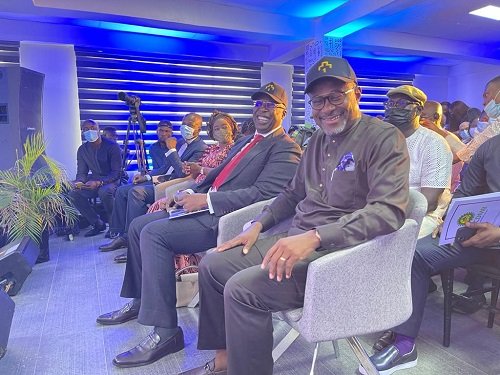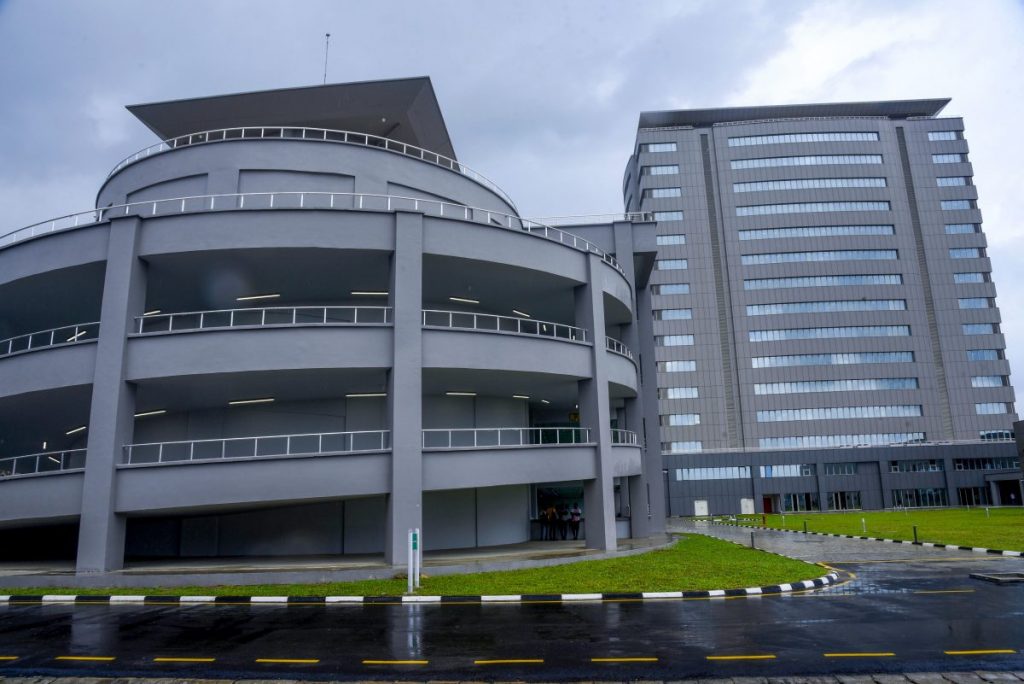 6 december 2011, Sweetcrude, Lagos – I remember how as a young teenager I was caught within the grips of what my friends and I now call the “Kodendiara effect.” It was Camara Laye, the author of “The African Child,” who introduced our young African minds to the delicious mystery of Kodendiara. Although in Ijawland newly born males are circumcised on the eighth day after their birth, we longed to have the more traumatic Guinean version which was performed between the ages of twelve and fourteen, in order for us to experience a real coming into manhood with an inevitable meeting with the legendary Kodendiara. Laye depicted an Africa of rolling hills, lush meadows and unspoilt glades, an Africa far less developed than the Europe of the 1950s but nevertheless a much beloved Africa.
6 december 2011, Sweetcrude, Lagos – I remember how as a young teenager I was caught within the grips of what my friends and I now call the “Kodendiara effect.” It was Camara Laye, the author of “The African Child,” who introduced our young African minds to the delicious mystery of Kodendiara. Although in Ijawland newly born males are circumcised on the eighth day after their birth, we longed to have the more traumatic Guinean version which was performed between the ages of twelve and fourteen, in order for us to experience a real coming into manhood with an inevitable meeting with the legendary Kodendiara. Laye depicted an Africa of rolling hills, lush meadows and unspoilt glades, an Africa far less developed than the Europe of the 1950s but nevertheless a much beloved Africa.
The Africa of Camara Laye was going through a process of changes that appear to have scarred her deeply. Having been weaned of the unwholesome practices (cannibalism, piracy, slavery and schism) that almost destroyed them, European societies had imbibed civilisation but still had needs for expanding their pretentious empires. Upon the invitation of Otto von Bismarck, German Chancellor and statesman, the ‘civilised world’ as it was then constituted (the United States opting out) met up in Berlin and partitioned Africa into spheres of influence for the signatory countries. With a few exceptions such as South Africa and apart from the violence required at the points of entry to quell dissent against occupation, violence by colonialists within the African continent was rare and subtle even when applied. Laye’s Conakry was an idyllic society where Africans and Europeans co-existed in a predictable and mutually acceptable pattern with the available infrastructure sparse but also curiously sufficient for the populace. But that was the turning point, the moment of great changes for Africa; the continent peopled by dark skin natives were about to be liberated by her own.
In form the African people have been liberated but the substance of their existence show they have need for further liberation, this time, from their own kind. Apart from Ghana and South Africa, the societies of Africa are governed by political interest groups that mock and force the will of the people. It is very simple logic that leaders whose performances are not reviewed through the ballot do not pursue or advance the preferences of the ballot and the ballot can only attract obeisance where it is effective. The political activists of Laye’s generation took much for granted; they trusted in the inherent goodness of the African to his fellows. There were hardly any futuristic plans to develop the political structures of the societies created by the colonialists, with the result that new interest groups with intents not different from the conferees at Berlin in 1884, hijacked power for their selfish interests. The direct implication of the logic of a weak ballot is the failure of the society.
The gullies on our roads, our inability to generate sufficient energy for our technological advancement, the insecurity on our streets, the slums and unplanned dwelling places, the unwholesome practices of regulatory agencies and the sharp reduction in life expectancy in our societies are all traceable to weak ballots. In Nigeria’s last elections, eligible voters were accredited and told to queue up again to vote. After the accreditation, no one taking the toll of accredited voters, corrupt electoral officers enter accreditation for voters who did not turn up to vote and cast votes for them. The moral behind the Obasanjo-Bello failure is that even those who design a system of electoral fraud can become victims of the system with time.
We can still do it right and justify Camara Laye’s generation’s trust in the intrinsic goodness of the African to his fellows so that even though we may not bring back those green hills, meadows and glades that was the Africa of yore, we can live in orderly, predictable and safe societies in which Kodendiara will only be invoked to chastise errant behaviour in the young.



